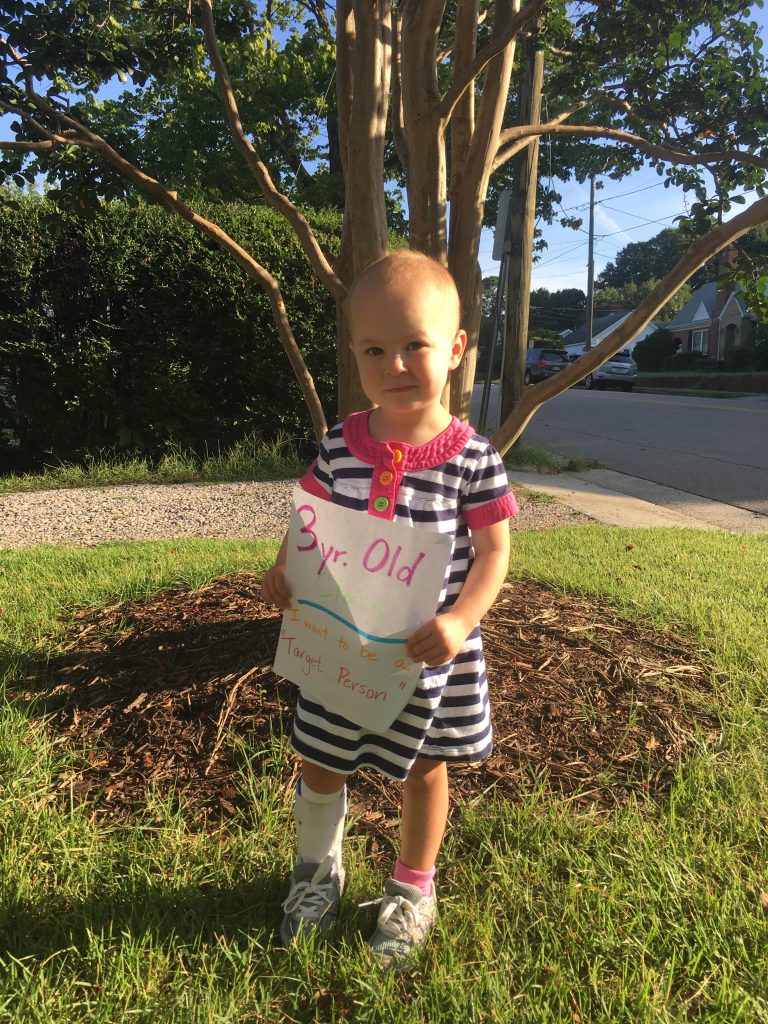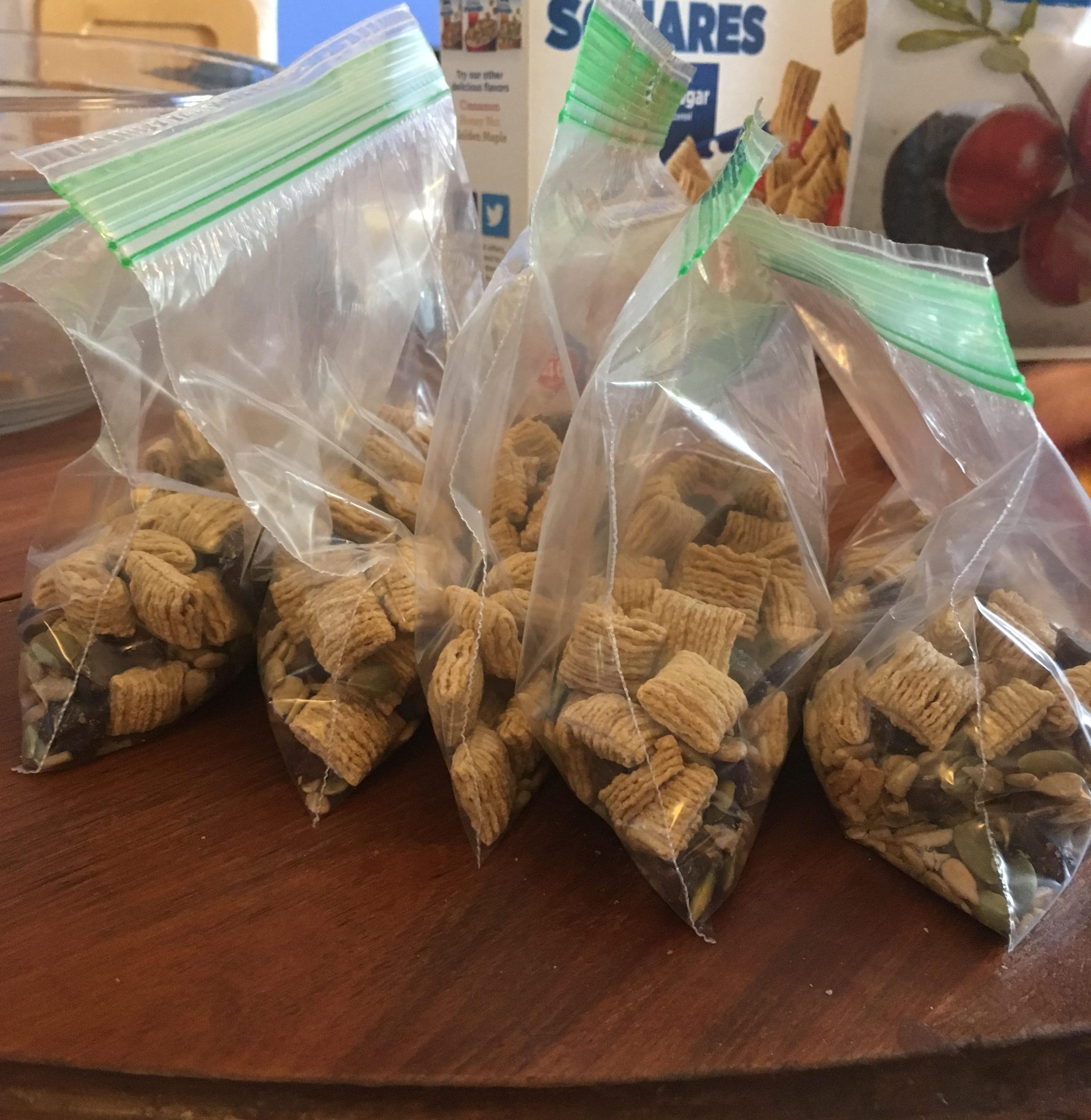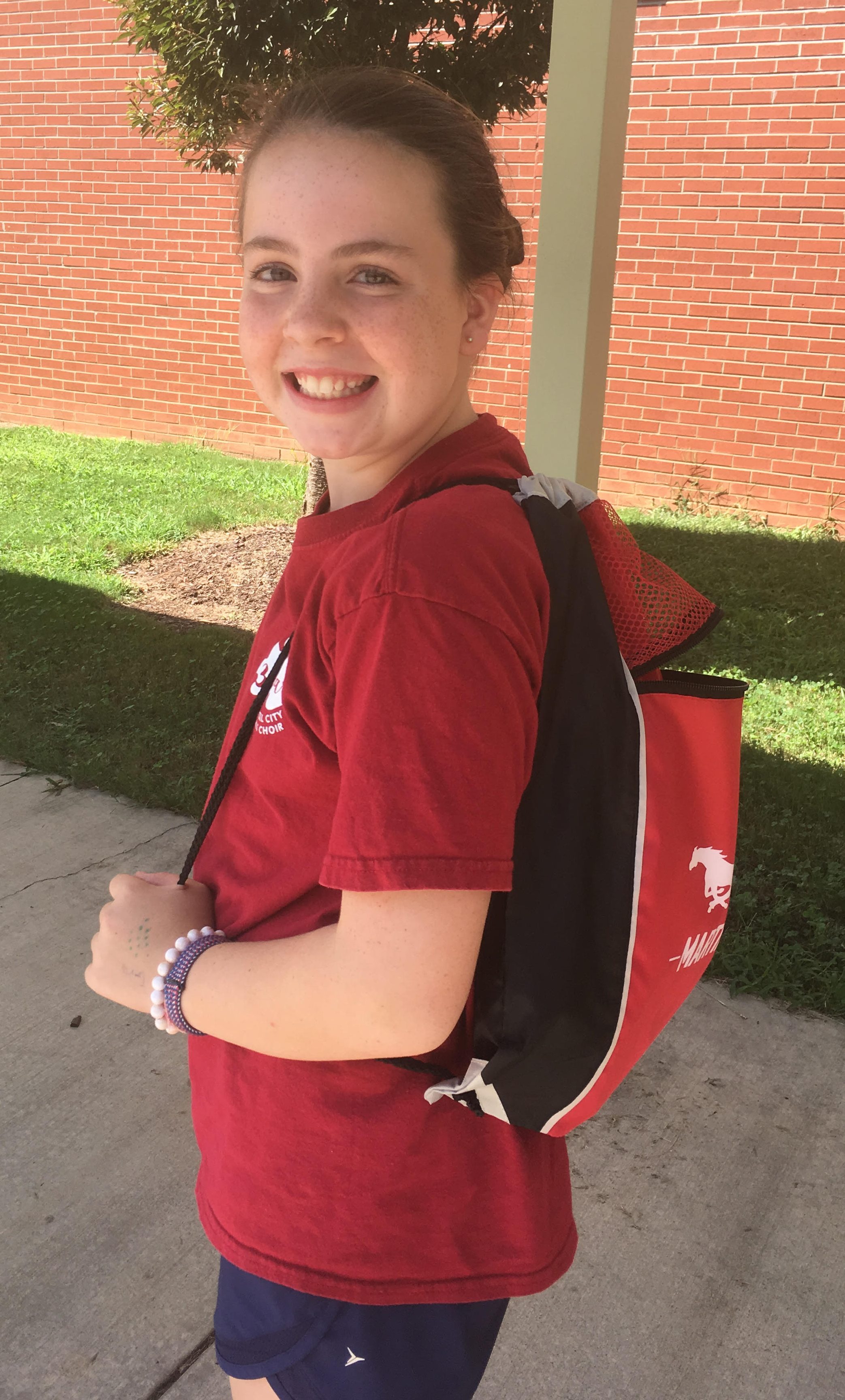It’s that time of year — back to school! The end of summer brings a lot of excitement and anticipation at my house. The last few weeks have been a juggling act with new schools and new schedules. We’ve told a dear nanny goodbye and we’re getting used to new childcare arrangements. I have a child who has started middle school and a very early morning schedule.
We have 3 children in 3 schools and in the process of adjusting. I’m back to planning and packing lunches and have been grateful for Elizabeth’s post on school lunch ideas. I find that during this time of year I get overwhelmed with the adjustment to all of the “newness.” I logically tell myself we will be okay and will settle into the new routine. I know, intellectually, if I forget to send in a signed form or miss an appointment, in the process, it won’t be the end of the world. I also know emotions aren’t logical.


Let’s Support Kids’ Natural Abilities
Part of the beginning of the school year is getting to know new teachers, administrators, and coaches. I am so grateful to teachers. I know I don’t have the skills or patience to be a teacher, and I always want to support them in making their very difficult job easier. I also know the way I approach food and nutrition in my home is often different from how others do. So, when there is a new educator or caregiver in my kids’ lives, I wonder what’s the best way to handle this potential difference. Because I am a Registered Dietitian who specializes in eating disorders and have the knowledge I do about nutrition education and the effect diet
culture can have on children, it’s important to me that my children’s exposure to age inappropriate nutrition education and diet culture is minimized. Unfortunately, I’ve seen firsthand children whose eating disorders were triggered by a nutrition lesson or school “wellness” program. Children are born with the innate ability to regulate their intake. It’s heartbreaking to me that we begin to teach this out of them, as early as preschool, with “nutrition lessons” and how we talk about weight and bodies. I never want to be “that mom” complaining to teachers, telling them how to do their jobs, but I also believe I have important information to share and can support teachers in not exposing kids to harmful diet culture.

Communicating with Teachers
The beginning of the school year always means introducing a new teacher to my philosophy of feeding and child nutrition. Unfortunately, it’s commonplace in schools for some adults to comment on what or how children are eating. In many school systems, nutrition education is based on diet culture, weight biased, and not age-appropriate. It’s always a debate for me whether I should explain my philosophy of feeding and nutrition upfront or if it’s best for me to wait and speak up if I’m concerned about something. I’ve handled it all different ways. There’s not a wrong or right way to approach this.
Send a Quick Email to the Teacher
To be proactive, in the past, I’ve sent a quick email or included a brief explanation when filling out the “get to know me” paperwork. I’ve written something along the lines of: “I’m a nutrition professional and approach food and nutrition differently than many. We feel strongly that food and weight are discussed in a neutral way to Miriam. We don’t talk about “good” foods or “bad” foods. We allow her to decide how much she eats of the food we offer and work hard to avoid diet talk. She can eat her lunch in any order she would like. I’d love to talk to you more about how we approach food, and I’m happy to help with any nutrition lessons this year.”
Other times, if a school policy, comment, or lesson comes up that is not supportive of kids’ intuitive eating abilities, I’ve sent an email, met with the teacher or administrator, or, oftentimes, both.
5 Resources to Give to Schools
Whether it’s a preemptive conversation or a conversation in response to something I’m concerned about, when I do talk to a teacher, I reach for the resources that I’ve gathered over the years. As the school year kicks off, I’m already getting inquiries about resources for schools and teachers about weight-neutral approaches to nutrition education. So, I thought it would be helpful to pull together some resources for parents that I’ve used in the past to help support and educate teachers and coaches.
- The Feeding Doctor’s Lunch Box Card: This is one of my favorite resources. Many schools have implemented rules about what can go in a lunch or how the lunch should be eaten. Or, concerned teachers or cafeteria monitors, because of their own beliefs about kids and nutrition, want to encourage a child to eat their lunch items in a certain order. This note takes the onus off of the child if they are asked to eat their carrots before their cookie. The child can hand the card to the lunchroom monitor. My friend and colleague Katherine Zavodni, RD, a Utah-based dietitian, always reminds me that we are asking teachers to do less when we ask them not to comment on children’s eating. That’s a great point to focus on. We are not asking teachers to do something extra in their already demanding workload. Katja Rowell, MD, “The Feeding Doctor” has other great school nutrition resources.
- Optimizing Healthy Eating Habits in the Classroom, created by Elisheva Dorfman, MS, LMFT & Dina Cohen, MS, RDN, CEDRD This handout is a fabulous resource that provides a summary of both children’s natural feeding abilities and how adults can talk about these topics to kids. This one page handout summarizes a lot of important information. It’s great to share with a teacher to get the conversation started.
- Ellyn Satter Institute – There are many wonderful resources from the Ellyn Satter Institute. For information about school nutrition education, look to her book Secrets of Feeding a Healthy Family – Appendix H: Nutrition education in the schools. Other great resources can be found in her Resource page under Preschool, School and Childcare.
- Academy of Eating Disorders Guidelines to Child Obesity Prevention Programs: This position statement from the Academy of Eating Disorders can be a nice resource to provide a school who may be implementing wellness programing that’s often not research based. (Side note: I don’t use the term “child obesity,” but including it here because it’s the title of this overall well-done resource.) These programs are often fear based and focus on weight, with the potential of making children in larger bodies feel unwelcome and flawed.
- Let’s Make Our Classrooms and Schools Free of Diet Talk: This summer, I wrote a blog post to my daughter’s camp counselor about diet talk around adolescents. I’ve pulled out the main points of the post and made a one page handout that you can download that summarizes why diet talk can be harmful. I hope this is helpful to you to share with schools and coaches.

Pick your battles
If you are concerned about the messages or potential messages in your kids school, these resources may be helpful to start a conversation with educators and coaches. Remember, there’s not a wrong or right way to approach these things. I’ve had to learn, I must pick my battles. If I wrote an email every time I am concerned about what was said about food or weight at school, I’d definitely lose my credence and I’d have no energy left. I do know for sure, that the messages in our home about weight and food have a much greater impact on our kids than what they hear at school. When I remember this, I feel much better and can focus on what feels the most important.
More anti-diet tips and simple recipes

We’re Elizabeth & Anna!
It’s great to have you here. We’re registered dietitians and we share tips to support you in raising kids with a healthy relationship with food.






This article was very helpful and encouraging to me. I am considering enrolling my first child, a toddler, into school for the first time, and found myself feeling anger and frustration when I read in the handbook that the school forbids “sweet treats” and “encourages” the children to eat protein foods first then complex carbohydrates and veggies. I am really worried about the potentially harmful messages she will be getting through all the “healthy eating” rules and talk. I will speak to the school about my concerns and I’m so glad you wrote this so I can use it to address things clearly. Do you also have any resources on what to do if your child still ends up learning damaging messages from school or elsewhere?
Tara, So glad you found this helpful. Here’s a podcast episode we recorded about nutrition curriculum you might find helpful. And also a link to a post Anna wrote about nutrition education.
https://sunnysideupnutrition.com/?s=Nutrition+education
https://sunnysideupnutrition.com/episode/school-nutrition-health-curriculums-with-sarah-ganginis/
Im thankful for the blog post.Much thanks again. Fantastic.
So glad you found it helpful.
Hi! The child o**** prevention link is broken!
Thank you so much for letting us know! We have fixed it!
I love this! I struggle a lot with how others speak to lids regarding food, and it’s good to know I’m not alone in this!
Thanks Bec! You are definitely not alone in this. We can relate!
Nice blog,
Thanks for sharing this excellent blog.
Keep blogging!!!
Montessori schools in Vellore
Kidscastle School Vellore
Thanks for reading!
Love that I ran across your article today, also in the field and have similar concerns and issues continue to run into and always trying to find the most productive wording and/or simple educational handout to share to back up or clarify the support behind my request, thank you for including your tips and resources. I find this a struggle to get across and seems especially difficult for those that have the diet mentality or certain views on how to “help” children eat so internalized. Thank you so much for the posting!
Thank you so much for reading, Summer. We’re so glad the resources are helpful. I agree – it can be so hard to get the point across, especially if it’s a new concept to the receiver.
Thank you so much for the article! My son started a new school this year and came home with a reading passage for homework that was about a boy who ate pizza, cookies, and soda and a coach telling him he couldn’t be on the basketball team if he ate all those “high sugar and high fat foods.” I’m sending some of your resources to the teacher.
Jenny, Thank you for reading our post and for your comment. These negative messages about food are everywhere. I’m so glad the article was helpful to you!
Hi! I’m an elementary school teacher (5th grade) and a mom of a 2.5 yr old girl, my first child. I
I’m my 30s and have been in recovery with anorexia for a few years. I have an almost 2.5yr old girl and I’m really looking for ways to bring her up in a healthy way, especially with food and positive body image, etc.
What advice would you give me, knowing I have a toddler?
Thanks so much!
HI Lauren, Thank you for reaching out. We have a number of posts that will help answer some of your questions: How to Raise Body Confident Kids, Variety – It’s Not Just about Fruits and Veggies and What are Parents to Do? 3 Nutrition Actions to Promote True Health. We also have some great resources listed on our Resource page. Let us know if you have more questions.
Thanks for this resource!
I’m a teacher and my attempts to push back at other adults policing kids lunch boxes has been met with scorn (since I’m not a parent), derision, and instructions to enforce their “healthy food first” rules.
(Though I sometimes can’t figure out how They decide which is which!)
I’m a big fan of getting kids to take home food they don’t like (or don’t finish) somparents know what is actually being eaten, and reminders to “ eat enough bites to have energy to play until next eating time or home time.
Thank you for reading my post and for your comment. It’s so great to a teacher helping kids listen to their bodies. 🙂 You are making a difference. Some of the kids may only get this message from you. Thank you for all you do!
These are all fantastic resources! Thank you for sharing them. My son just started full day school and I’ve been wondering what’s being said around him by well-meaning adults around him.
I hope the resources come I handy. You are right – educators are well meaning and often have been told to do the opposite of what these resources say!I hope your son’s school year os going well.